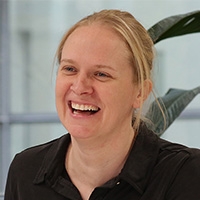Facts of the case
Mr Riley crashed his motorcycle and was admitted to the Defendant Trust's Hospital for treatment. Unfortunately, due to an admitted delay in treatment, his right leg required a below knee amputation. He was 20 years of age at the time of the crash, and 27 by the time the matter reached Trial.
The case was heard by Deputy High Court Judge Mr. David Allan KC. Ten experts were called to give oral evidence in the fields of orthopaedics, rehabilitation, care/OT, prosthetics and accommodation. Written evidence was received from a number of other specialists.
The key issues were:
Life expectancy
The Claimant was fit and well prior to his accident. He did not regularly consume alcohol and he did not smoke. The experts agreed that there were no reliable studies of below knee amputations indicating that the amputation resulted in a reduction in life expectancy. The Court therefore approached the case on the basis the Claimant had normal/average life expectancy.
Loss of earnings
Immediately prior to the crash, the Claimant had enrolled on a Sports Science course at University, with a view to pursuing a career as a PE teacher. The experts agreed that as a result of the severity of his leg injuries sustained in the crash (regardless of the later negligent delay in treatment) that option was no longer viable.
The Court found that it was likely the Claimant would instead have pursued an IT based degree. The Claimant contended losses should be calculated on a conventional 'multiplicand/multiplier' basis. The Defendant argued that because of uncertainties around future employment, a Smith v Manchester or Blamire award should be adopted.
The Court concluded that whilst there were obvious uncertainties, there was sufficient evidence available to enable the Court to reach conclusions and follow the conventional method.
Care and case management
The Claimant accepted a Housecroft v Burnett discount of 25% to reflect that the past care was provided gratuitously by family members. The Defendant argued that future care would likely be a hybrid model, mixing gratuitous and agency care. The Court rejected this contention, noting that there was no guarantee there would be someone available to provide gratuitous care and awarded the costs of agency care.
Transport
The Claimant purchased an Audi Q7 at a cost of almost £60k. The Defendant argued this was unreasonable and a much more modest, second-hand vehicle would have sufficed. The Court found that it was reasonable for the Claimant to purchase a new vehicle, reasonably requiring reliability and bearing in mind his dependence on the vehicle.
Accommodation
The experts agreed that it was reasonable for the Claimant to purchase a bungalow at a cost of almost £530k. Credit was given for the Claimant's "in any event" property which would have cost in the region of £250k. The Defendant sought to argue that the Claimant had failed to mitigate his losses in not requiring his partner to contribute half of the "in any event" purchase price (£125k). The Court rejected this argument identifying; it was unlikely they would ever move, because the adaptation costs would be too great and his partner was already placed under the increased burden caring for their child (and any future children) owing to his disability.
Prosthetics
The Parties agreed that the Claimant required access to three prosthesis until age 70. As to whether the Claimant should recover the cost of a Procarve snowboarding foot (he had attended one indoor ski lesson and expressed an interest in trying snowboarding) the Court found that he was unlikely to take up snowboarding anytime soon with the impending birth of his child, and his age tended to indicate that if he did take it up it would be for a limited number of years.
One cycle of prosthetic provision was allowed. No provision was made for the introduction of new technologies (and consequent rises in price) as this was too speculative.
Comment
In a detailed 52 page judgment Deputy High Court Judge Mr. David Allan KC awarded damages of £4,676,442 to Mr Riley. This does appear to be a generous award on the basis of the information available and the Judge favoured the claimant's arguments on almost every point. The most significant heads of loss being, unsurprisingly, future care and case management (£980,557) and accommodation (£983,313).
The costs of going to trial would have been substantial, that said, without detailed quantum judgments such as this, practitioners are left to 'guess' how a judge might interpret the arguments. For busy practitioners managing catastrophic injury cases this decision therefore a helpful guide as to how a judge would award fair compensation.
Our Healthcare team
The national healthcare team at DWF are proud to act on behalf of a large number of clients, from individual insureds, insurers, private hospitals, the Medical Protection Society and NHS Resolution and a number of NHS Trusts.
The team, led by Vicki Swanton, have extensive experience in all aspects of healthcare litigation arising from allegations of medical malpractice including:
- Multi-party actions
- Advocacy (including in-house barristers)
- Attending mediation, settlement meetings and other forms of formal dispute resolution
- Preparing and defending claims through to contested Trials
- Training
- Inquest advice and representation
- Costs
- Coverage and indemnity advice
- Insurance notifications and TPA claims handling














